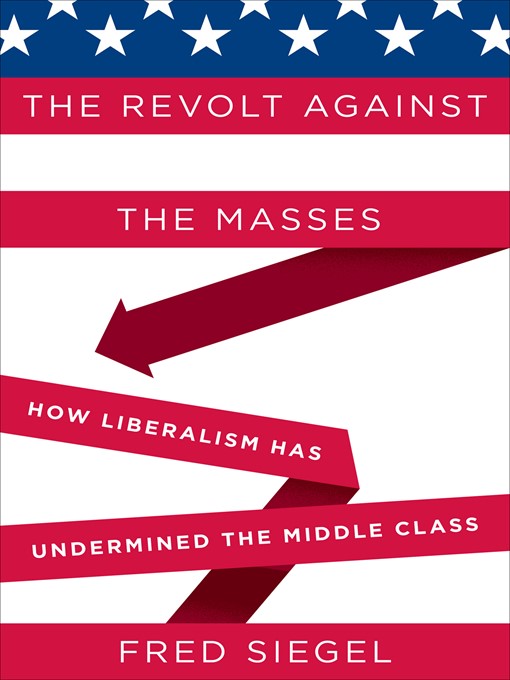This short book rewrites the history of modern American liberalism. It shows that what we think of liberalism today—the top-and-bottom coalition we associate with President Obama—began not with Progressivism or the New Deal but rather in the wake of the post-WWI disillusionment with American society. In the Twenties, the first writers and thinkers to call themselves liberals adopted the hostility to bourgeois life that had long characterized European intellectuals of both the left and the right. The aim of liberalism's founding writers and thinkers—such as Herbert Croly, Randolph Bourne, H.G. Wells, Sinclair Lewis, and H.L Mencken—was to create an American aristocracy of sorts, to provide the sense of hierarchy and order that had long been associated with European statism.
Like communism, Fabianism, and fascism, modern liberalism was born of a new class of politically self-conscious intellectuals. Critical of mass democracy and middle-class capitalism, liberals despised the individual businessman's pursuit of profit as well as the conventional individual's pursuit of pleasure, both of which were made possible by the lineaments of the limited nineteenth-century state.
Temporarily waylaid by the heroism of the WWII generation, liberalism expressed itself in the 1950s as a critique of popular culture. It was precisely the success of a recently elevated middle-class culture that frightened foppish characters such as Dwight Macdonald and Aldous Huxley, crucial influences on what was mistakenly called the New Left. There was no New Left in the 1960s, but there was a New Class that in the midst of Vietnam and race riots took up the priestly task of de-democratizing America in the name of administering newly developed rights
The neo-Malthusianism that emerged from the 1960s did not aim to control the breeding habits of the lower classes, as its eugenicist precursors had done, but to mock and restrain the buying habits of the middle class.
Today's Barack Obama brand of liberalism has displaced the old Main Street private-sector middle class with a new middle class composed of public-sector workers allied with crony capitalists and the country's arbiters of style and taste.
- Available now!
- New eBook additions
- New kids additions
- New teen additions
- Most popular
- Always Available eBooks
- See all
- Available now
- AZ's Most Popular Audiobooks
- New Audiobooks
- Always Available Audiobooks
- New kids additions
- New teen additions
- Try something different
- Extremely Funny Audiobooks
- See all

